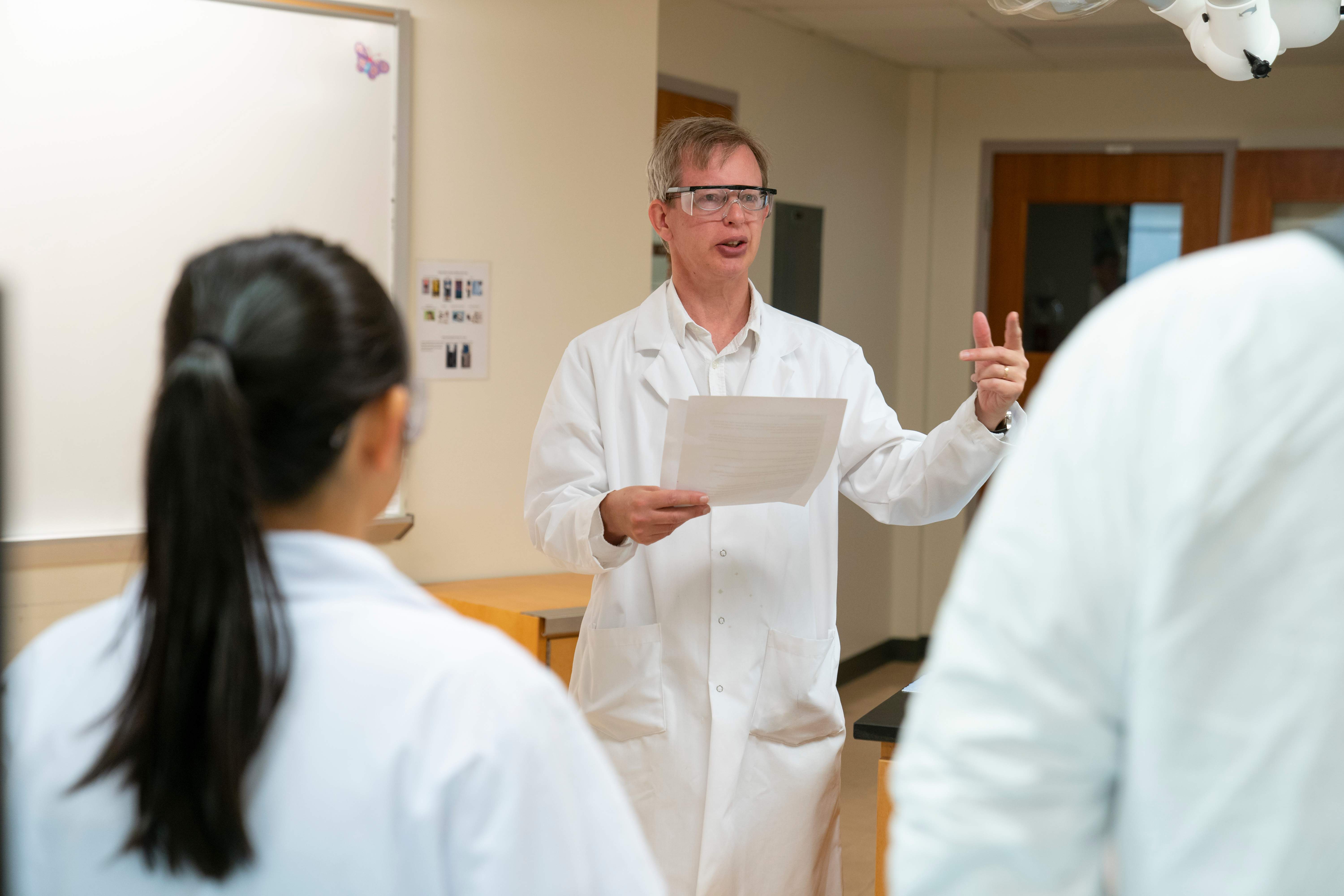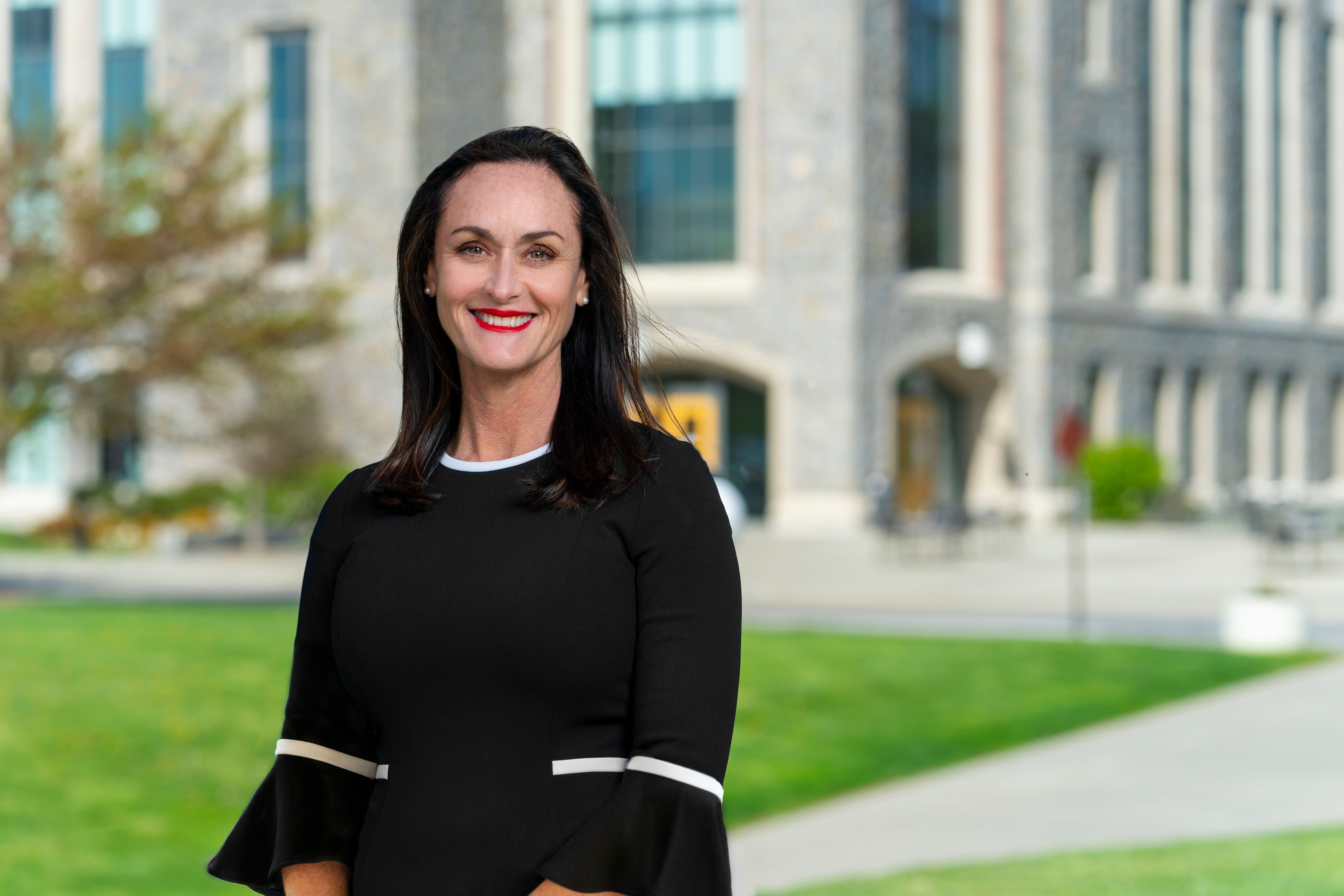The National Science Foundation has awarded Marist’s School of Science a $1,480,254 grant to support high-achieving low-income students in STEM majors. Eleven freshmen, majoring in biology, chemistry, biochemistry, and environmental science, started their journey as scholars in the program this fall.
The project, entitled "Gateway to Success: Combining Financial, Academic, and Psychosocial Supports to Promote Academic Success of Low-Income STEM Majors," was spearheaded by Dean of the Marist School of Science Alicia Slater and Associate Dean Neil Fitzgerald.

School of Science Associate Dean Neil Fitzgerald. Photo: Carlo de Jesus/Marist College.
“This grant is a major milestone for the School of Science and a valuable tool in our efforts to help all students reach their full potential,” said Slater. “It is our hope that theprograms we begin for the S-STEM scholars will promote the academic success of alllow-income students in the future.”
The overall goal of the project is to increase STEM degree completion among high-achieving undergraduates with significant financial need. In particular, the project willallow students to focus on academic success and improve student performance in gateway STEM courses. It includes strong mentoring and career planning support while fostering a sense of belonging to both the campus and community and adding to the professional formation of students’ science identities.
“Expanding educational opportunity is one of our very highest priorities,” said Marist President Kevin Weinman. “This grant increases Marist’s ability to attract, enroll, and retain a diverse group of talented students regardless of their financial circumstances, and we are grateful to the NSF for recognizing the importance of this work.”
Over its six-year duration, this project will cover all billable charges for a total of up to 23 full-time students or “S-STEM scholars” pursuing undergraduate degrees in biology, biochemistry, chemistry, or environmental science as well as a laptop and research and travel funding. Students will participate in a funded summer bridge program, take gateway classes as a cohort, reside in a living–learning community, have dedicated faculty advisors, and receive experiential and employment opportunities to reduce financial need and provide valuable discipline-based experience.
All S-STEM scholars will also take Marist’s liberal arts core, reflecting Marist’s mission of developing well-rounded students.

